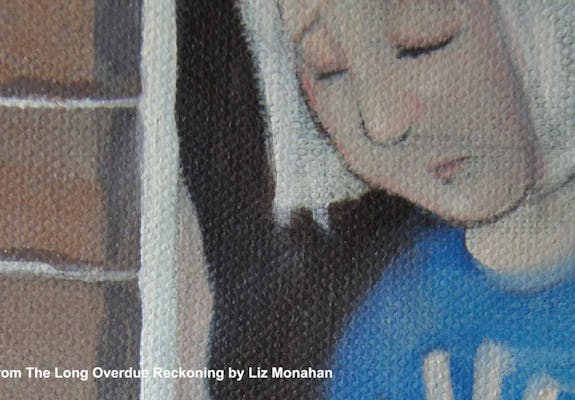
After the Storm
On entering the church, I was confronted by a gallery of artworks hung from the walls of a modern cafe. St Stephen’s, a beautiful city centre church, steeped in history, had been transformed. The exhibition, ‘After the Storm’ presented a collection of two and three-dimensional pieces that both challenged and comforted. They resurrected forgotten memories and raised difficult questions. They caused me to stop and consider anew the impact of the pandemic, to acknowledge the struggles but also to imagine new possibilities.
The exhibition was one of a series of events during September, that gave people a chance to reflect on the global Covid-19 pandemic. It was built around the idea that storms are often followed by a period of calm before entering a time of energetic, creative, rebuilding.
One piece that was particularly striking was called The Long Overdue Reckoning by Liz Monahan. The work documented the unprecedented events of the past 18 months. Reading it from left to right, it it began with Boris Johnson, Rishi Sunak and Nightingale hospitals. It recounted clapping for carers, food deliveries and 'love the NHS'. It showed people locked in their homes with fear etched across their faces. To the right the story finished with sunlight, socialising in gardens and birds fluttering in the trees. From pain, it was leading to a better, more hopeful future.
What struck me most from the painting, which had far more detail than I could describe here, was how much I had already forgotten about the pandemic. I needed to stand and contemplate, wondering whether I had deliberately allowed my memory to fade. Was it healthy to let go of the past and to move on, or should I try to remember the details in order to learn from them?
Reflecting on difficult times is not something that I would usually choose to do. It can lead to a sense of melancholy or even depression. However, there are times when it can be essential. In bereavement, reflecting is a significant part of our grieving. It can lead to all sorts of emotions and behaviours like anger, blaming others and denying the truth. But it eventually leads us to a sense of acceptance. It is an important process and not something to be rushed. I think it is the same with Covid-19. My fear is that, in our hurry to get ‘back to normal’ or to ‘build back better’, we are going to rush past the reflecting stage and miss important truths.
But it seems that as lockdown slips further back in our memory, so does our desire to put others first. Today we are panic buying at petrol stations, wondering where we can find lorry drivers to deliver our Christmas goods, arguing about whether, or not, we should remove the £20 universal credit uplift to some of the poorest in our country. It feels like we are returning to the familiar, well-worn paths of the ‘me generation’.
Clearly, we have not yet reached the end of the Covid-19 journey. There will be further twists and turns in the path ahead and more to be learned. Let’s be patient and continue to care for one another (and for ourselves). Let's not lose the gains we have made, such as the greater sense of togetherness, the new appreciation of key workers, and the increased awareness of the vulnerable. Hopefully, pulling together, we can indeed build back better.
